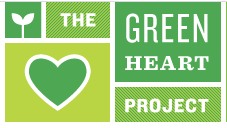Clemson Architecture partners with Green Heart
December 17, 2019The Green Heart Project, a local nonprofit focused on education, healthy food and community, partnered with Clemson Architecture and its CommunityBUILD program to design and build a farm stand structure at the future site of its Urban Farm at Enston Home.
The stand will provide space to process and prepare harvests, act as an outdoor gathering and learning area, and serve as a seasonal market stand where produce from the farm can be purchased.
“This farm stand is a result of three years of planning and community-informed design. We are so grateful to Clemson Architecture students and faculty who worked hard to incorporate elements from the existing architecture at this historic site, as well as input from residents and other stakeholders,” said Jesse Blom, Green Heart’s executive director. “The farm stand will be the operations center for our new Urban Farm, allowing us to process and distribute the food we grow.”
As part of the semester-long project, Clemson Architecture students gained valuable experience researching, designing, gaining approvals through the Charleston Board of Architectural Review and building the farm stand. They also documented the entire process on their design/build blog.
This is the 21st community project completed by Clemson Architecture students since 2008 in the Charleston area, and is in line with the organization’s recent shift in focus on community projects in public spaces. In connection with the farm stand project, another graduate student is completing a feasibility study on the potential renovation of the Enston Home’s Memorial Hall, where The Green Heart Project is leasing the bottom floor for farm storage currently.
“The Farm Stand project provided the students unparalleled hands-on experience in historic Charleston working with the community through the design, review and build process,” said David Pastre, senior lecturer of architecture with Clemson Architecture. “This particular group of students was very diverse, not only from a gender and racial standpoint, but also from a degree perspective, which benefited the project immensely, and ultimately, all community stakeholders who will be served by this project.”
Located at the intersection of King and Huger streets in the Upper Peninsula of downtown Charleston, the Urban Farm at Enston Home is a partnership between The Green Heart Project and the Charleston Housing Authority. It fulfills the spirit of William Enston’s will by building a garden for its residents, while serving as an educational asset for surrounding schools.
Half of the funds have been raised towards the project’s $2.1 million fundraising goal for the Urban Farm. Individuals and corporations are invited to learn more about how they can support the project at http://www.greenheartsc.org/.
About Green Heart Project
Founded in 2009, the Green Heart Project is a 501c©3 non-profit organization that builds urban gardens and farm-to-school programs in the Charleston area. With a high value placed on health, education and community, the Green Heart Project pairs local volunteers with students to maintain school gardens while teaching academic standards and interpersonal skills. By doing so it looks to educate students and volunteers about healthy, local foods while fostering lasting relationships and building community. For more information on how to get involved, please visit their website at www.greenheartsc.org. Follow them on Instagram and Twitter (@GreenHeartCHS).
About Clemson Architecture CommunityBUILD
This Clemson Architecture CommunityBUILD program is designed for M.Arch. and M.S. Arch. students who wish to further their understanding and application of a community centric architecture + process, design + building at full scale, sustainable programming + entrepreneurship, and post project documentation + sustained community impact. True to the University’s mission, the program embodies the spirit of service-learning and student engagement while celebrating family and community living, sustainable environments, leadership and entrepreneurism, and general education.
















